Disclosure: This article contains affiliate links. We may earn a commission from purchases at no extra cost to you, which helps our travel content.
The cacophony of commerce has its own distinct dialect in Guangzhou, one that transcends linguistic barriers and speaks directly to both merchants and customers alike. As an anthropologist who has spent decades studying material culture and trade networks across continents, I've developed an ear for this universal language. My first encounter with Guangzhou's markets twenty years ago—while researching textile production networks extending from China to the Andes—left me simultaneously overwhelmed and captivated. Today, this metropolis remains China's undisputed commercial nucleus, where ancient trading traditions blend seamlessly with hyper-modern retail concepts. Whether you're sourcing wholesale products for business, hunting for authentic crafts, or simply experiencing the cultural phenomenon of Chinese commerce, Guangzhou offers an unparalleled window into how goods and people circulate in our interconnected world.
Understanding Guangzhou's Commercial Landscape
Guangzhou's identity as a commercial powerhouse dates back to the Tang Dynasty when it served as the starting point of the Maritime Silk Road. This historical context is crucial for understanding the city's contemporary shopping landscape, which is stratified into distinct commercial ecosystems.
The wholesale districts—concentrated around Liuhua Road, Zhongda Fabric Market, and the behemoth that is Yide Road—form the foundation of Guangzhou's commercial identity. These are not merely places of transaction but complex social institutions where relationships and reputation remain as valuable as currency. During my research visits, I've observed how these spaces operate on principles of guanxi (relationship networks) that determine everything from pricing to product access.
In contrast, the city's luxury malls like Taikoo Hui and Teemall represent China's embrace of global consumerism, offering climate-controlled environments where international brands court China's growing middle and upper classes. The juxtaposition of these sleek retail palaces against traditional markets illustrates China's economic transformation in microcosm.
Between these extremes lie the specialized markets—jade at Hualin, electronics at Gangding, and traditional medicine at Qingping—each with its own cultural protocols and specialized knowledge systems. As an anthropologist, I find these specialized markets particularly fascinating as they preserve domain-specific expertise that has been refined over generations.
To navigate this complex landscape effectively, I've found that a portable translator device is invaluable. While many vendors speak basic English, negotiating nuances and understanding product specifications becomes significantly easier with reliable translation technology.
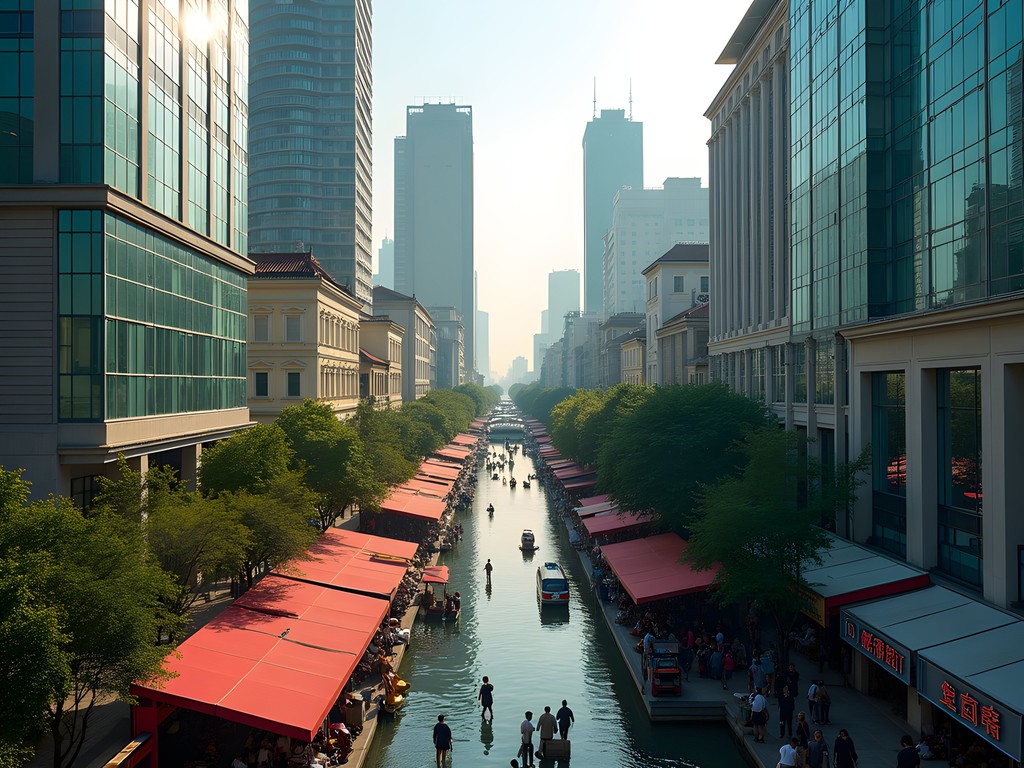
💡 Pro Tips
- Learn basic Mandarin phrases for numbers and negotiation before your trip
- Bring multiple forms of payment including cash and international credit cards
- Photograph products and prices for comparison shopping across different markets
Navigating the Wholesale Markets: A Business Traveler's Guide
The wholesale markets of Guangzhou represent one of the most concentrated commercial ecosystems on the planet, yet they operate according to unwritten rules that can bewilder the uninitiated. Having accompanied numerous artisan collectives from Latin America on sourcing trips here, I've developed strategies for navigating these complex spaces effectively.
The crown jewel of Guangzhou's wholesale universe is undoubtedly the Canton Fair Complex, which hosts the world's largest trade show biannually (April-May and October-November). If your travel coincides with these dates, securing an invitation is well worth the effort, as the fair provides access to thousands of manufacturers under one roof. However, be prepared for overwhelming scale—I recommend focusing on specific pavilions rather than attempting to cover the entire exhibition.
For everyday wholesale sourcing, the cluster of markets surrounding Liuhua Road offers year-round access to everything from garments to electronics. The key to success here lies in understanding the spatial organization: each building typically specializes in specific product categories, with similar vendors clustered together across multiple floors. This arrangement facilitates price comparison but requires stamina—my fitness tracker once logged over 18,000 steps during a single day of sourcing textiles.
The Zhongda Fabric Market deserves special mention for anyone interested in textiles. Spanning several blocks of multi-story buildings, this market represents a material culture researcher's dream. Here, you'll find everything from mass-produced polyester blends to exquisite hand-loomed silks. The vendors here expect negotiation, but approach it as a relationship-building exercise rather than a battle. I've maintained connections with certain fabric suppliers here for over a decade, and these relationships have proven invaluable for my work with artisan communities.
For documenting products and maintaining inventory records during intensive sourcing trips, I rely on my tablet with stylus. The ability to photograph items, annotate images with specifications, and organize everything into digital catalogs has revolutionized my sourcing methodology.
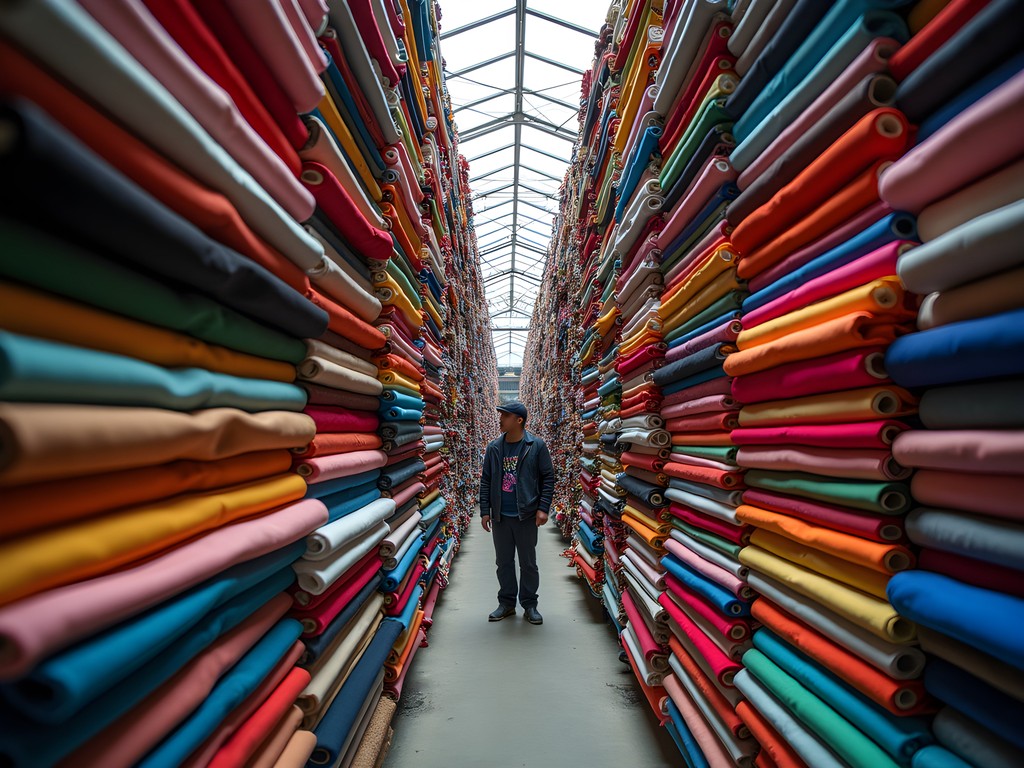
💡 Pro Tips
- Visit on weekday mornings to avoid the largest crowds
- Bring business cards with your details in both English and Chinese
- Start with higher floors in multi-level markets where prices are often better
Cultural Treasures: Beyond Mass Production
While Guangzhou is renowned for wholesale commerce, the city harbors remarkable pockets of authentic cultural production that often escape the notice of business travelers. These spaces offer insights into traditional Chinese craftsmanship and present opportunities to acquire items of genuine cultural significance.
The Xiguan Antique Market in the Liwan District stands as my favorite alternative to mass-market shopping. Nestled among historic Xiguan mansions, this collection of shops specializes in antiques, calligraphy supplies, and traditional crafts. During my last visit, I spent hours conversing with a third-generation seal carver who explained how changing political climates throughout China's tumultuous 20th century had transformed his family's artistic practice. His workshop—filled with stone dust and the sweet scent of cinnabar paste—offered a tangible connection to centuries-old traditions.
Nearby, Shangxiajiu Pedestrian Street combines historical architecture with retail therapy. The street is lined with Qilou (arcade houses) featuring distinctive fusion of Chinese and European architectural elements—physical embodiments of Guangzhou's historical role as a crossroads of global trade. Beyond the expected souvenir shops, persistent explorers will discover workshops producing traditional paper cuts, embroidery, and Cantonese opera accessories.
For those interested in traditional Chinese medicine, the Qingping Market provides a sensory journey through China's pharmacopeia. While I don't personally purchase medicinal ingredients here, the market offers fascinating insights into traditional Chinese approaches to health and wellness. The elaborate classification systems for herbs and animal products reflect sophisticated indigenous knowledge systems that have developed over millennia.
When exploring these cultural spaces, I've found that keeping detailed field notes enhances both the experience and my subsequent recollections. My hardcover journal has accompanied me through countless markets worldwide, its pages filled with observations, sketches, and the occasional pressed flower or textile swatch.
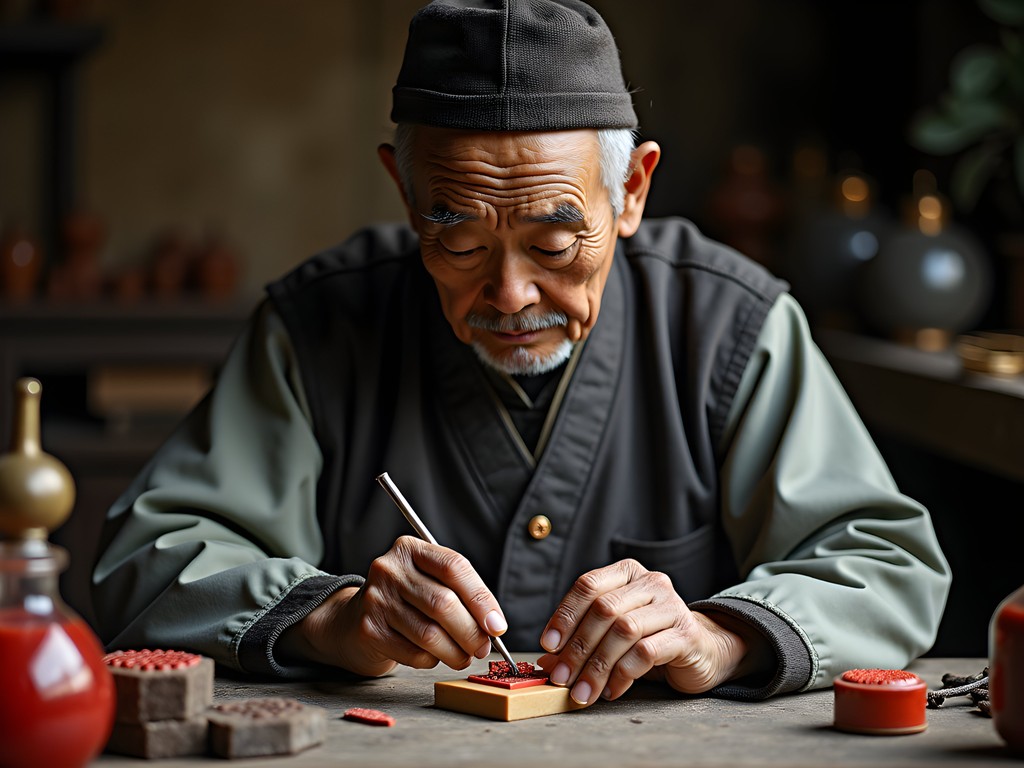
💡 Pro Tips
- Visit cultural markets with a local guide who can translate and provide context
- Ask permission before photographing artisans or their workshops
- Learn about the cultural significance of items before purchasing
Modern Retail: Guangzhou's Mall Culture
The proliferation of luxury malls across Guangzhou represents more than simple retail expansion—it embodies China's complex relationship with modernity, status, and global consumer culture. As an anthropologist, I find these spaces fascinating as sites where traditional Chinese values intersect with contemporary consumption practices.
Taikoo Hui in the Tianhe district exemplifies the premium mall experience in Guangzhou. Beyond housing international luxury brands, the complex functions as a cultural statement through its architectural design, art installations, and carefully curated atmosphere. During my most recent visit, I observed multi-generational family groups engaging in what appeared to be recreational shopping—an activity where the social experience and status performance seemed to outweigh actual purchasing intentions.
Teemall, connected directly to the Tianhe metro station, represents a more accessible incarnation of modern retail. Spanning multiple buildings, this complex draws a predominantly younger demographic. The food courts here offer an excellent opportunity to observe contemporary Chinese food preferences and socialization patterns. I've spent many evenings simply watching the elaborate choreography of social media photography that occurs around particularly photogenic desserts and beverages.
For a glimpse into China's technological retail future, K11 Art Mall merges shopping with cultural programming in ways that challenge Western distinctions between commerce and art. During my last visit, the central atrium hosted an exhibition of contemporary Chinese ceramic artists, creating a thought-provoking juxtaposition with the luxury goods in surrounding shops.
Navigating these vast complexes and the city's extensive metro system requires comfortable footwear. My walking shoes have proven indispensable during long days transitioning between Guangzhou's various commercial environments. Their breathable material performs admirably in Guangzhou's notorious humidity while providing sufficient support for concrete floors.
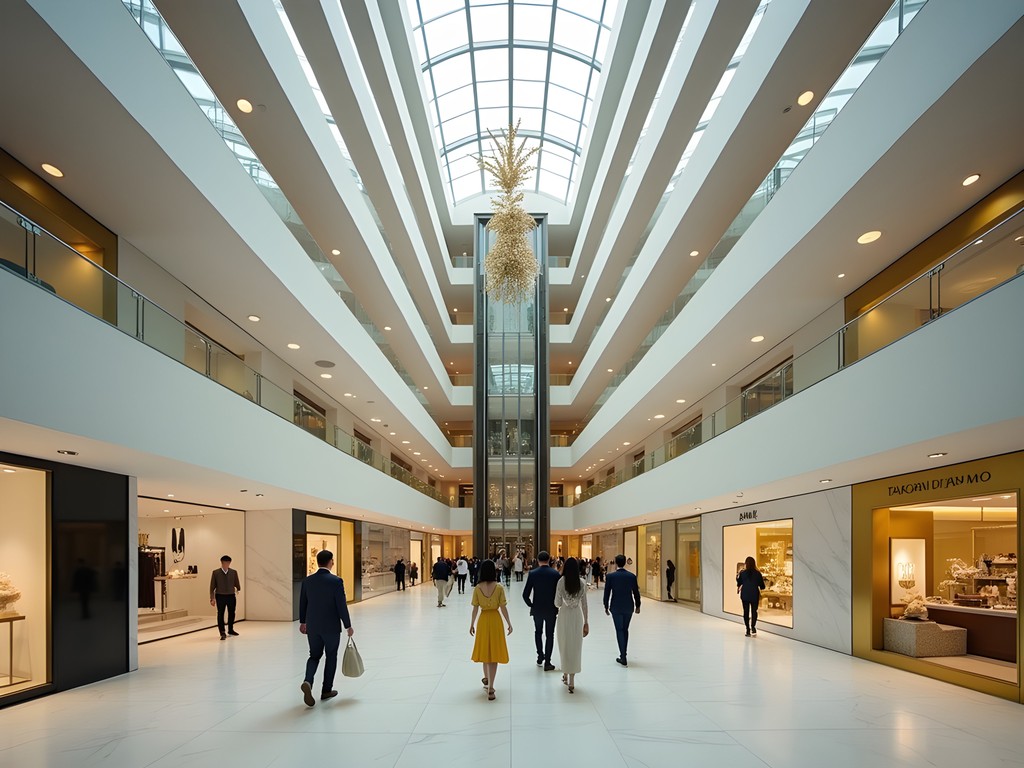
💡 Pro Tips
- Use mall information desks to request English-speaking assistance when needed
- Look for tax refund services in luxury malls if making significant purchases
- Visit malls during weekday afternoons to avoid weekend crowds
Negotiation Strategies and Cultural Protocols
Effective negotiation in Guangzhou requires understanding the cultural frameworks that govern commercial interactions. Having observed countless transactions across diverse market settings, I've identified patterns that can help Western business travelers navigate these exchanges more successfully.
In wholesale contexts, pricing operates on a sliding scale influenced by multiple factors: quantity ordered, perceived buyer expertise, time of day, vendor inventory levels, and—perhaps most significantly—relationship quality. Chinese commercial culture places tremendous value on long-term relationships, often prioritizing future business potential over immediate profit maximization. This contrasts sharply with Western transactional approaches that often focus exclusively on immediate price optimization.
Before engaging in negotiation, observe the market environment carefully. In my field research methodology, I typically conduct a preliminary survey of multiple vendors selling similar items, noting both asking prices and the subsequent negotiated prices of other buyers when visible. This establishes a realistic price range before I engage directly.
When negotiating, maintain respectful demeanor regardless of the asking price. Expressions of shock or accusations of overcharging violate social norms and typically result in the vendor becoming entrenched in their position. Instead, express interest in the product while gently suggesting a lower price point, perhaps 40-50% below the initial ask for markets where significant negotiation is expected.
The calculator method—where both parties type numbers into a calculator, passing it back and forth—remains common practice for overcoming language barriers. This approach creates a concrete record of offers and counteroffers while allowing both parties to save face during the negotiation process.
For complex wholesale negotiations, consider engaging a local sourcing agent. During my research with Andean textile cooperatives, we worked with a Guangzhou-based agent whose cultural fluency and established vendor relationships proved invaluable. The commission paid was more than offset by improved pricing and quality assurance.
To record negotiations and ensure accurate understanding of terms, I use my voice recorder with permission from vendors. This practice has prevented numerous misunderstandings, particularly regarding delivery schedules and product specifications.

💡 Pro Tips
- Never begin serious negotiations unless you're genuinely interested in purchasing
- Maintain a pleasant demeanor throughout negotiations, as relationships matter more than individual transactions
- Bundle multiple items together when possible to negotiate better overall pricing
Ethical Shopping and Sustainability Considerations
As an anthropologist who has witnessed the environmental and social impacts of global supply chains firsthand, I approach Guangzhou's commercial landscape with both fascination and concern. The city's manufacturing ecosystem presents particular challenges for the ethically-minded shopper, yet also offers unexpected opportunities for more responsible consumption.
The environmental footprint of Guangzhou's industrial production is substantial. Air quality issues remain persistent despite governmental interventions, and the Pearl River Delta continues to face water pollution challenges from industrial discharge. However, it's important to recognize ongoing improvements—many factories have implemented cleaner production methods in response to both regulatory pressure and market demands for more sustainable practices.
For business travelers sourcing products, requesting factory visits can provide crucial insights into working conditions and environmental practices. During my work with artisan cooperatives, we've made such visits standard practice, allowing us to verify that our sourcing aligns with our values. While smaller buyers may lack leverage to demand such transparency, joining with other small businesses can create collective influence.
Surprisingly, Guangzhou has also become home to a growing ecosystem of upcycling enterprises and circular economy initiatives. In the Haizhu district, several workshops specialize in transforming industrial textile waste into new products—an encouraging development I've documented over multiple visits. These businesses represent an indigenous response to environmental challenges rather than imported Western concepts of sustainability.
The Guangzhou Secondhand Market near Xicun offers another alternative to new production. Here, everything from electronics to furniture finds second lives, extending product lifecycles and reducing waste. During my last visit, I discovered a collection of vintage enamelware that reflected fascinating hybrid aesthetic influences from the early Communist era.
For those concerned about the authenticity and ethics of their purchases, I recommend bringing a portable luggage scale. Beyond helping avoid excess baggage fees, these devices can verify product weights against specifications—particularly useful when sourcing metals, textiles, or other materials where substitution of inferior materials is a concern.
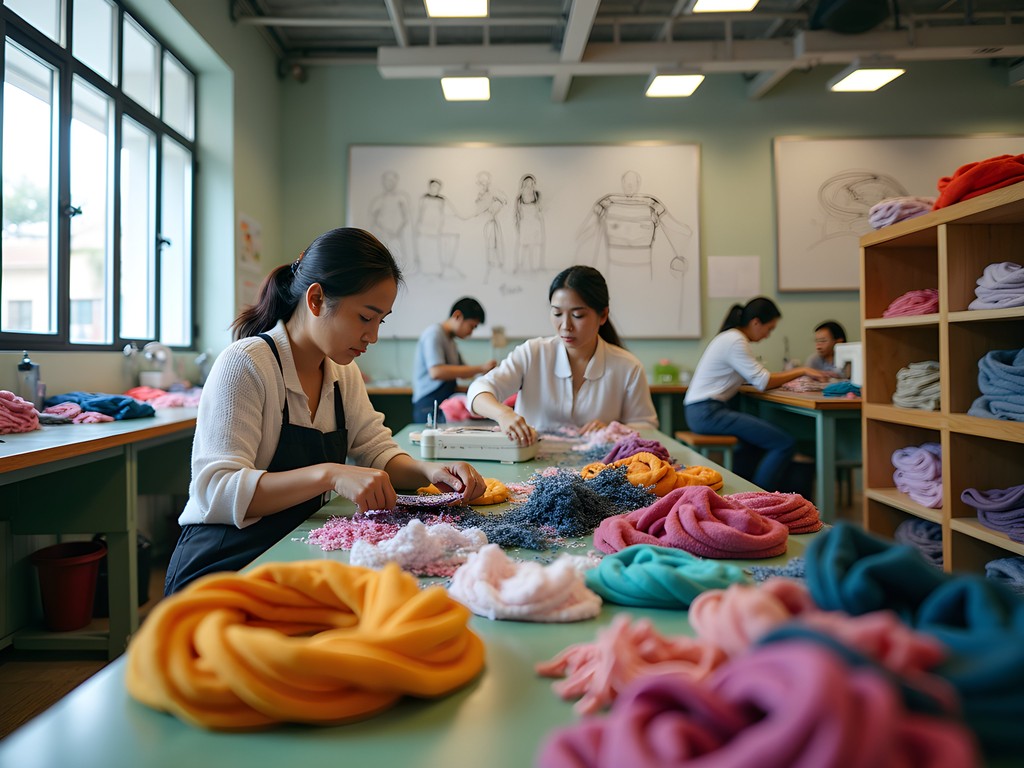
💡 Pro Tips
- Ask vendors about their supply chains and manufacturing processes
- Look for businesses participating in certification programs like ISO 14001
- Consider buying higher quality items in smaller quantities to reduce overall consumption
Final Thoughts
Guangzhou's markets and malls offer more than mere commercial exchange—they provide windows into China's evolving relationship with global capitalism, tradition, and modernity. As an anthropologist, I've come to see these spaces as living laboratories where cultural values are negotiated through seemingly mundane transactions. Whether you're sourcing products for business or seeking to understand contemporary Chinese consumer culture, approach Guangzhou's commercial landscape with curiosity and respect for the complex social systems that underpin it. The city rewards those willing to venture beyond surface-level transactions to engage with the people and stories behind the products. In the intricate dance of commerce that animates Guangzhou's markets, we find not just goods changing hands, but cultural knowledge being transmitted, relationships being formed, and traditions being simultaneously preserved and transformed. This commercial metropolis, with its layered history and dynamic present, continues to shape global material culture in ways that extend far beyond China's borders.
✨ Key Takeaways
- Guangzhou's commercial landscape reflects centuries of trading history alongside rapid modernization
- Successful negotiation requires understanding cultural protocols and relationship-building
- Look beyond mainstream wholesale markets to discover authentic cultural products and traditions
- Consider ethical implications and seek out sustainable alternatives within the commercial ecosystem
📋 Practical Information
Best Time to Visit
year-round, avoiding Chinese New Year (dates vary) and October National Holiday
Budget Estimate
$100-200 per day excluding purchases
Recommended Duration
5-7 days
Difficulty Level
Beginner With Preparation

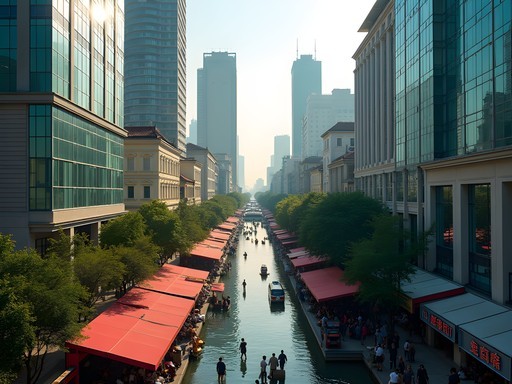
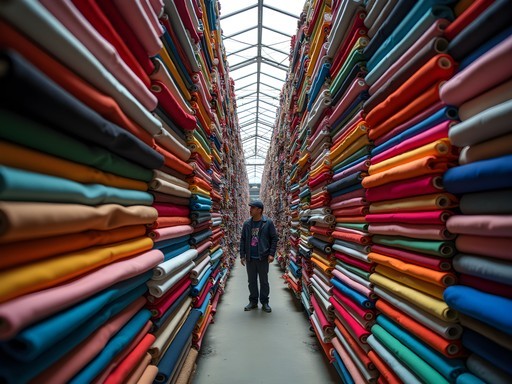
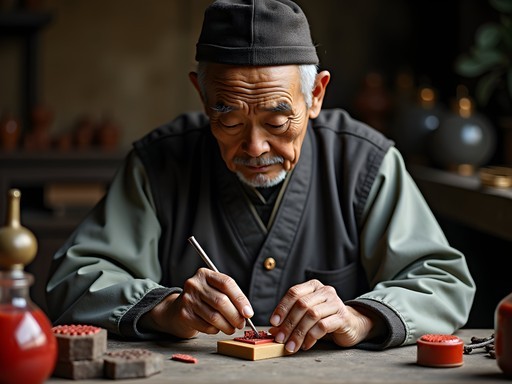
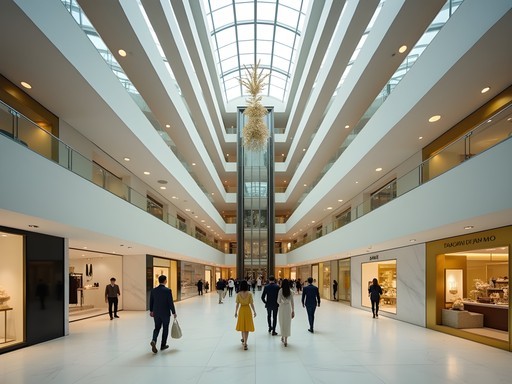

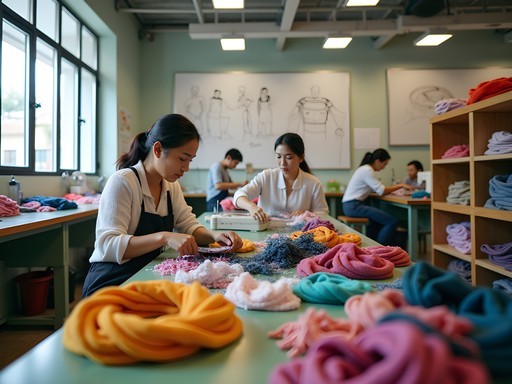


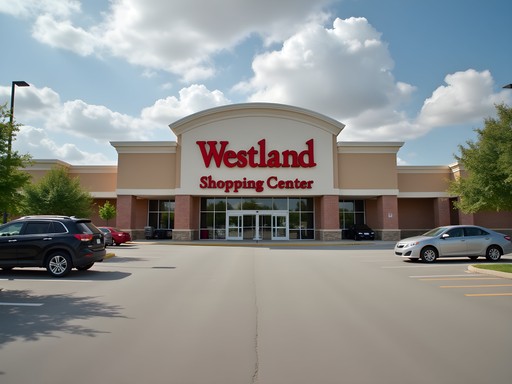
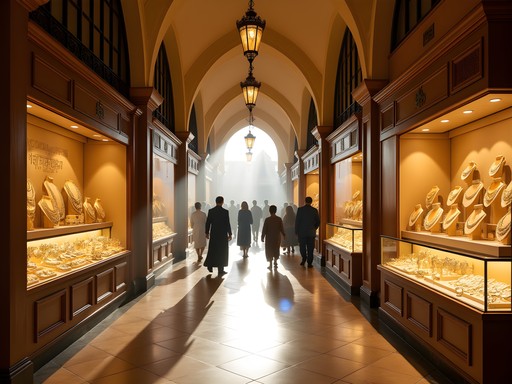
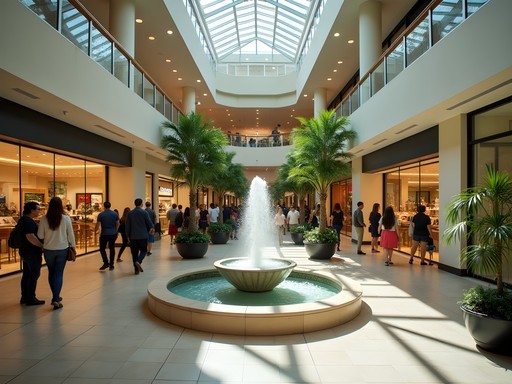
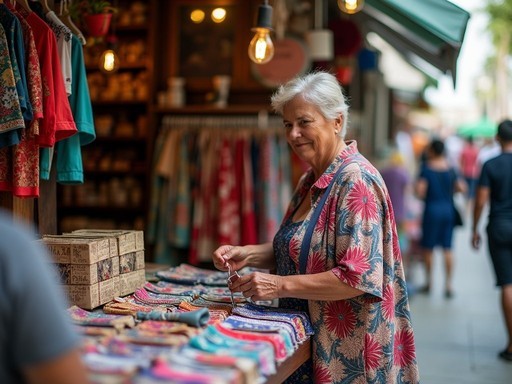
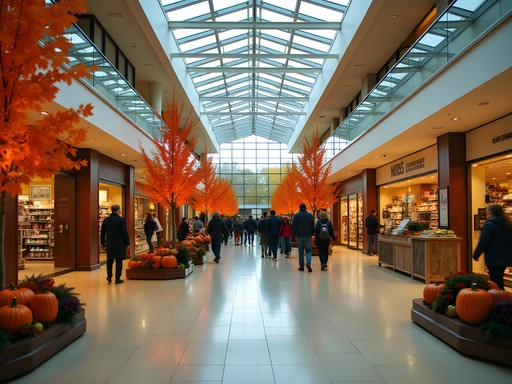
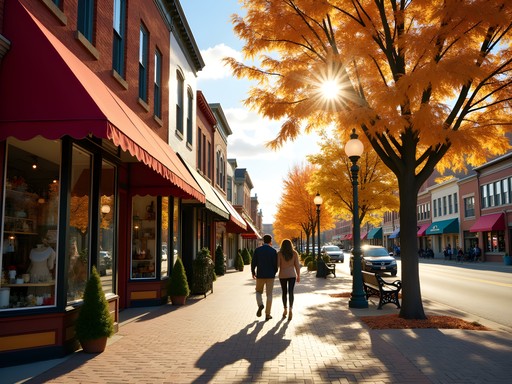
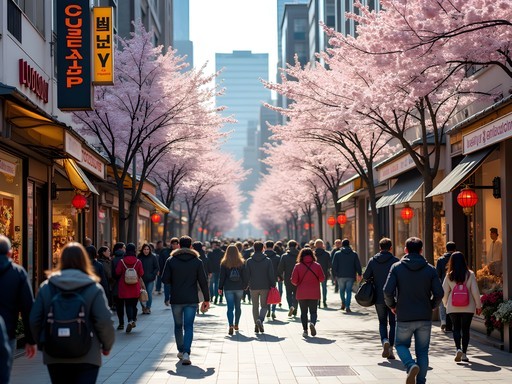
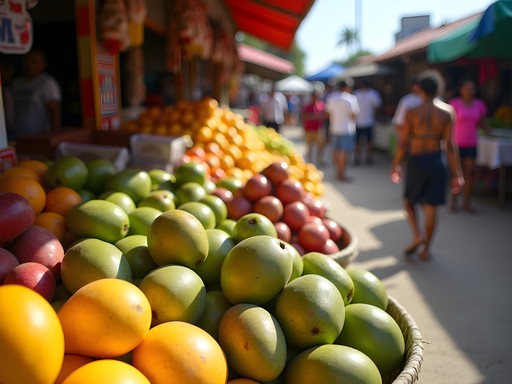
Comments
Sage Dixon
Samantha, this brings back memories! I spent three days getting completely lost in the Yide Road market back in 2019. Your point about the "dialect of commerce" really resonates - I remember this elderly vendor who spoke zero English and I spoke zero Mandarin, but we negotiated a deal for ceramic teapots using just hand gestures and a calculator. Ended up having tea with her family in the back of the stall. That's the magic of Guangzhou's markets - they're not just transactional, they're deeply human. The modern malls are impressive, but those wholesale districts are where the real stories live. Did you make it to the jade market near Changshou Road? That place is an adventure.
globeadventurer
That tea story is amazing! Those little moments are the best part of travel.
globeadventurer
Spot on about the wholesale markets! Saved so much money there.
Sage Dixon
Right?? The prices are insane compared to retail. Which market did you hit up?
globeadventurer
Mostly the fabric market in Haizhu. Bought enough material for like 10 projects lol
roamace
Great post Samantha! Your section on 'Cultural Treasures: Beyond Mass Production' really resonated with me. Most people only think of Guangzhou for wholesale shopping, but I spent days exploring the traditional craft shops around Liwan District and was blown away. Found beautiful hand-painted ceramics and traditional paper cuts that were nothing like the mass-produced stuff. The jade market was another highlight - though you definitely need to know your stuff or bring someone who does! The contrast between these traditional markets and the ultra-modern malls like Grandview is what makes Guangzhou so fascinating. One thing I'd add for first-timers: the metro is super efficient for getting between shopping areas, but don't miss walking through the connecting neighborhoods - that's where I found the most interesting small shops.
Hunter Thompson
The jade market! Yes! I was too intimidated to buy anything but just watching the serious buyers examine pieces was fascinating. Did you try any of the tea shops in Liwan too?
roamace
I did! Spent a small fortune on tea but it was worth it. The shop owners were so patient with my terrible Mandarin and let me sample everything. Brought back some amazing oolong.
skyone
Planning a trip to Guangzhou next month. Is it worth visiting the wholesale markets if I'm just a tourist and not buying in bulk? Or should I stick to the regular malls?
roamace
Definitely visit the wholesale markets even as a tourist! They're an experience in themselves. Just be prepared for the chaos. I'd recommend Onelink Plaza for electronics and Beijing Lu for general shopping. The vendors are used to tourists too.
skyone
Thanks! Any specific time of day that's best to visit?
roamace
Mid-morning is good - around 10-11am. Avoid the early morning rush of business buyers and the afternoon crowds. And bring a good city map or use offline maps because it's easy to get turned around in those massive markets!
summerfan
Just got back from Guangzhou last week! This guide would've been so helpful. The markets are overwhelming but amazing!
Hunter Thompson
Brilliant breakdown of Guangzhou's commercial landscape, Samantha! I spent three weeks there last year and the wholesale markets are absolutely mental - in the best way possible. For anyone heading to Guangzhou specifically for business buying, I'd add that having a translator app is essential. Even with the merchants used to international buyers, the language barrier can be tough. The Beijing Lu Pedestrian Street you mentioned was my favorite for atmosphere, but I found some absolute gems in the smaller side streets too. One tip I'd add: most vendors expect haggling, but always be respectful about it. Start at about 40-50% of the asking price and work from there. Anyone else found the same?
roamace
Totally agree on the haggling approach! I found 40% was usually my sweet spot too. Did you try any of the fabric markets? I spent a full day just exploring those.
Hunter Thompson
Yes! The fabric markets were incredible. I'm not even in the textile business but was mesmerized by the variety. Zhongda Fabric Market was particularly impressive - took hundreds of photos there!
Bryce Diaz
Samantha, your anthropological perspective on Guangzhou's markets adds such depth! My last visit was purely business, but you've inspired me to look deeper on my return trip next spring. I've spent countless hours in the garment markets, but completely missed the cultural significance you highlighted. One thing I'd add for readers: the markets have their own rhythm. Early mornings (before 10am) are best for serious buyers - vendors are fresh and more willing to negotiate. By afternoon, they're tired and less flexible. Also, don't miss Shangxiajiu Pedestrian Street in the evening when the lanterns light up. It transforms from commercial chaos to something magical. I stumbled upon an elderly man doing traditional sugar art there - watching him create intricate animals from molten sugar was the highlight of my trip!
waveone
Just got back from Guangzhou last week and this guide would've saved me so much time! The Beijing Lu pedestrian street was my favorite - such a cool mix of modern shops and historical sites. Those stone pathway ruins under glass were unexpected! We totally got lost in Onelink Plaza for hours lol. Pro tip: the food courts in the big malls have picture menus which saved us when ordering. Wish I'd known about the Xinghai Handicrafts Market though - missed that completely!
roamlover
How was getting around? Did you use the metro or taxis mostly?
waveone
Metro all the way! Super cheap and easy with signs in English. Just download the Guangzhou Metro app before you go - it works offline and saved us so many times.
roamlover
This guide is perfect timing! I'm heading to Guangzhou next month for my first sourcing trip. Any tips on which wholesale market to hit first if I only have 3 days? So nervous about the bargaining part!
Bryce Diaz
I was in your shoes last year! Start with Liuhua Complex - it's less overwhelming than some others. Bring a calculator app on your phone for bargaining and always start at 40% of their first price. Also, the metro system is super efficient for getting between markets. I found having my translation app was a lifesaver for specific product questions!
roamlover
Thanks Bryce! Definitely downloading that app. Did you find most vendors spoke some English or is it really hard without Chinese?
Bryce Diaz
In the main wholesale areas, many vendors have basic English for numbers and negotiating. But once you get into specifics about materials or manufacturing, that's where translation helps. Oh, and wear comfortable shoes - you'll walk MILES!
moonblogger
How's the public transportation for getting between these markets? Can you walk between them or better to take metro?
Douglas Bradley
The metro in Guangzhou is EXCELLENT - clean, efficient, and has English signage. Most major markets are near stations. I wouldn't recommend walking between markets as they're quite spread out. Get a transportation card at any station - it works for metro and buses. The Guangzhou Metro app with offline maps saved me countless times!
Venture X
Premium card with 2X miles, $300 travel credit, Priority Pass